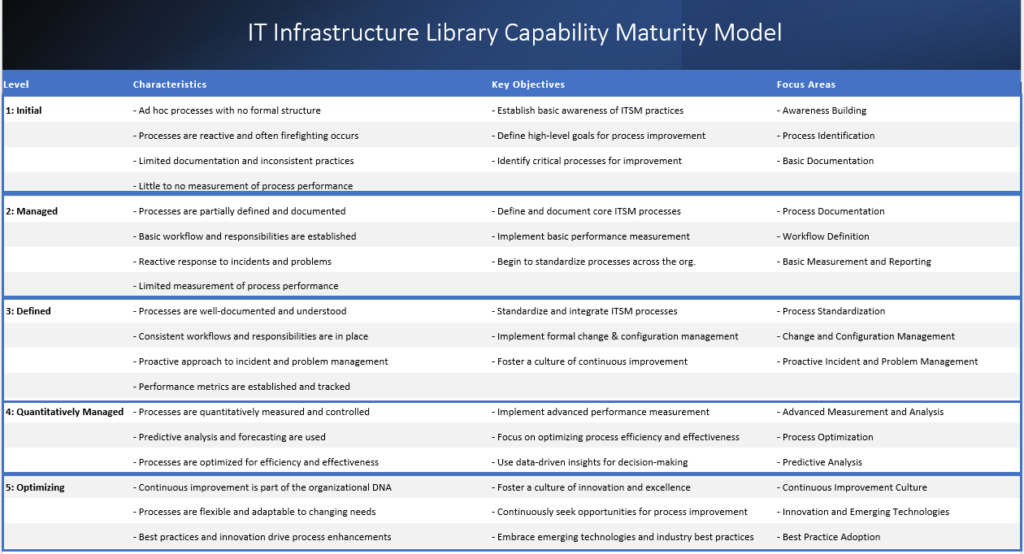Efficient Workday to ServiceNow Integration

Efficient Workday to ServiceNow Integration: Integrating Workday with ServiceNow in large organizations can be challenging due to data overload. This guide outlines effective strategies to categorize departments, ensuring a smoother and more manageable integration process.
ITSM Capability Model- L1

In a world where technological landscapes are constantly evolving, the role of IT Service Managers has never been more critical. They are the architects of seamless operations, the guardians of customer experience, and the driving force behind continuous improvement. With a keen understanding of ITSM practices, they transform chaos into harmony, elevating service delivery to new heights. Their leadership sets the standard for excellence, ensuring that every ticket, every change, and every incident is handled with precision and care. In this dynamic landscape, IT Service Managers are the unsung heroes, the linchpins of organizational success, and the champions of a brighter digital future.
BMC Remedy ITSM Reference

Containing proven and practical implementation, maintenance, and optimization advice to the IT service and support environment. Authored by widely respected practitioners and experts, and developed with a hands-on approach. It provides a holistic view for setting up a Support Centre and gives a reference for Support managers to evolve their existing Support Centre, guidance to implementing ITIL processes and other Support Centre processes not in ITIL and a focus on operational metrics for the Support Centre.
Remedy to ServiceNow Migration

Remedy to ServiceNow Migration
Gamifying ITSM Excellence

Gamifying ITSM Excellence. Leveraging gamification, you can conquer prevalent ITSM challenges and attain excellence. This dynamic approach fosters shared visions, secures senior buy-in, surmounts change resistance, addresses resource constraints, and […]
ROI: Demand AI Service Management

Maximizing ROI: Emergent Demand for AI Service Management. AI is actively reshaping mainstream healthcare, legal and Federal Government. Make no mistake Artificial Intelligence is not taking jobs, so much as […]
Freshwork’s Multichannel vision for FreshService (ITSM)

FRESHWORKS: the COMPANY: Headquartered in San Mateo, California, Freshworks employs 4,000 employees from 13 global locations. Freshworks became a public company, trading on Nasdaq as FRSH. Their founders Girish Mathrubootham and Shan Krishnasamy aim is […]
